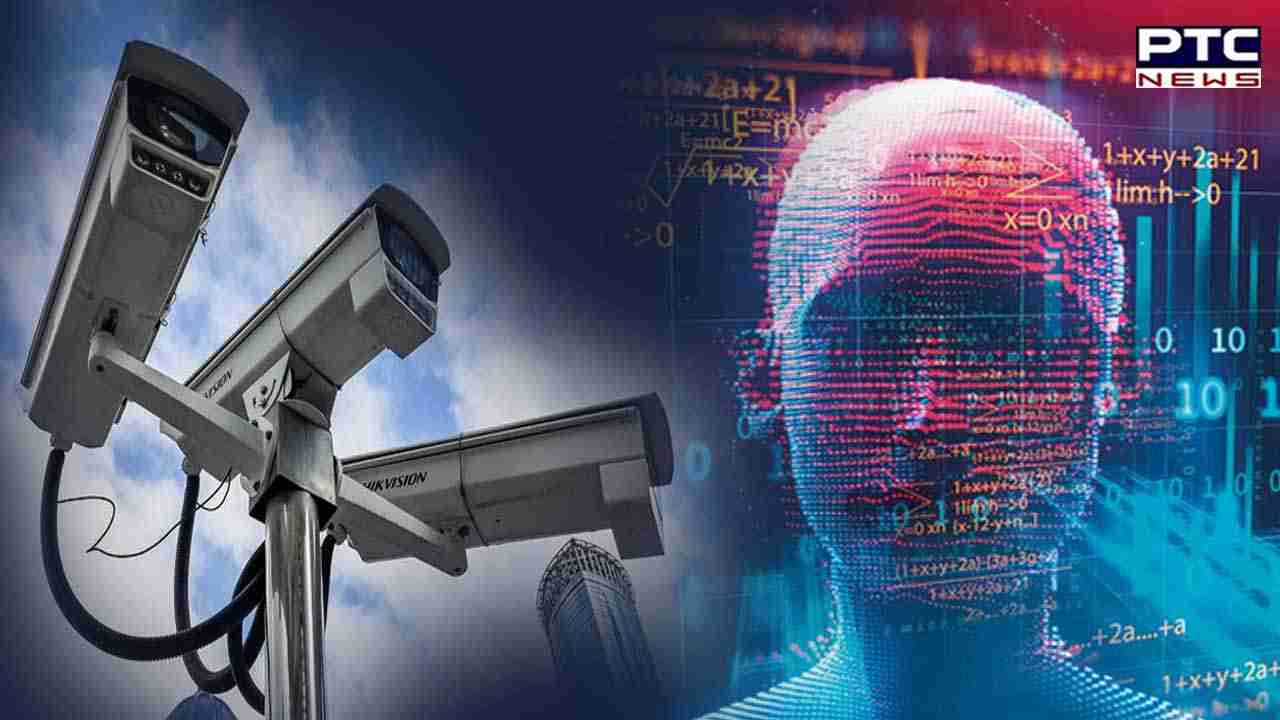

China's use of surveillance cameras that can detect skin colour raise human rights concerns
PTC News Desk: A report by the IPVM (Internet Protocol Video Market), a US-based security and surveillance industry research group, says that Chinese surveillance equipment maker Dahua is selling cameras with what it calls a "skin colour analytics" feature in Europe.
According to a July 31 IPVM report obtained by VOA Mandarin, "the company defended the analytics as being a 'basic feature of a smart security solution.'"
VoA is the United States of America's state-owned news network and international radio broadcaster, producing digital, TV, and radio content that is distributed globally.
According to IPVM and the Los Angeles Times, Dahua gave a video surveillance system with "real-time Uyghur warnings" to Chinese police in February 2021, including eyebrow size, skin colour, and ethnicity.
According to IPVM's 2018 statistical report, Dahua and another Chinese video surveillance company, Hikvision, have obtained contracts worth USD 1 billion from the government of China's Xinjiang province, a centre of Uyghur life, since 2016.
According to the report, Dahua's ICC Open Platform standard for "human body characteristics" includes "skin colour/complexion." According to Dahua's "data dictionary," the "skin colour types" that Dahua analytic tools will target are "yellow," "black," and "white." VOA Mandarin confirmed this on Dahua's Chinese website, according to VOA.
According to the IPVM report, skin colour detection is mentioned under the "Personnel Control" category, which Dahua claims as part of its Smart Office Park solution, which is designed to offer security for major corporate campuses in China.
"Basically what these video analytics do is that, if you turn them on, then the camera will automatically try and determine the skin colour of whoever passes, whoever it captures in the video footage," Charles Rollet, the co-author of the IPVM report said.
"So that means the camera is going to be guessing or attempting to determine whether the person in front of it … has black, white or yellow, in their words, skin colour."
According to the IPVM research, Dahua sells cameras with skin colour analytics in three European countries. Germany, France, and the Netherlands have all recently seen racial unrest.
According to Dahua, skin tone analysis is an important role in surveillance technology.
"The platform in question is entirely consistent with our commitments to not build solutions that target any single racial, ethnic, or national group. The ability to generally identify observable characteristics such as height, weight, hair and eye colour, and general categories of skin colour is a basic feature of a smart security solution," Dahua said.
IPMV said the company has previously denied offering the mentioned feature, and colour detection is uncommon in mainstream surveillance tech products.
In many Western nations, there has long been a controversy over errors due to skin colour in surveillance technologies for facial recognition. Identifying skin colour in surveillance applications raises human rights and civil rights concerns.
"So it's unusual to see it for skin colour because it's such a controversial and ethically fraught field," Rollet said.
Anna Bacciarelli, technology manager at Human Rights Watch (HRW), told VOA that Dahua technology should not contain skin tone analytics.
"All companies have a responsibility to respect human rights, and take steps to prevent or mitigate any human rights risks that may arise as a result of their actions," she said in an email.
"Surveillance software with skin tone analytics poses a significant risk to the right to equality and non-discrimination, by allowing camera owners and operators to racially profile people at scale — likely without their knowledge, infringing privacy rights — and should simply not be created or sold in the first place" she added.
Dahua denied that its surveillance products are designed to enable racial identification. On the website of its US company, Dahua says, "Contrary to allegations that have been made by certain media outlets, Dahua Technology has not and never will develop solutions targeting any specific ethnic group."
The US Federal Communications Commission determined in 2022 that the products of Chinese technology companies such as Dahua and Hikvision, which has close ties to Beijing, posed a threat to US national security.
On June 14, the European Union passed a revision proposal to its draft Artificial Intelligence Law, a precursor to completely banning the use of facial recognition systems in public places.
"We know facial recognition for mass surveillance from China; this technology has no place in a liberal democracy," Svenja Hahn, a German member of the European Parliament and Renew Europe Group, told Politico.
The US government has long prohibited sectors such as healthcare and banking from discriminating against customers based on race. IBM, Google and Microsoft have restricted the provision of facial recognition services to law enforcement.
Rollet said, "If the camera is filming at night or if there are shadows, it can misclassify people."
Caitlin Chin is a fellow at the Center for Strategic and International Studies, a Washington think tank where she researches technology regulation in the United States and abroad.
"So this is something that's both very dehumanizing but also very concerning from a human rights perspective, in part because if there are any errors in this technology that could lead to false arrests, it could lead to discrimination, but also because the ability to sort people by skin colour on its own almost inevitably leads to people being discriminated against," she told VOA.
- ANI
